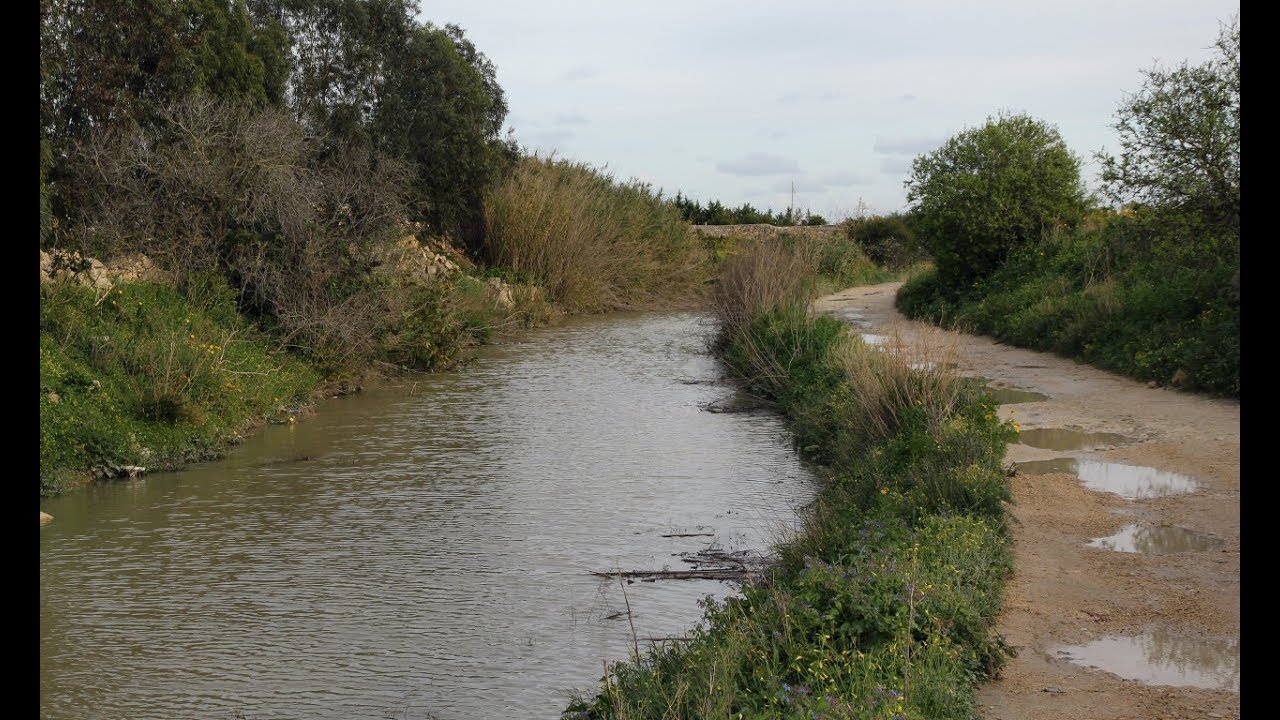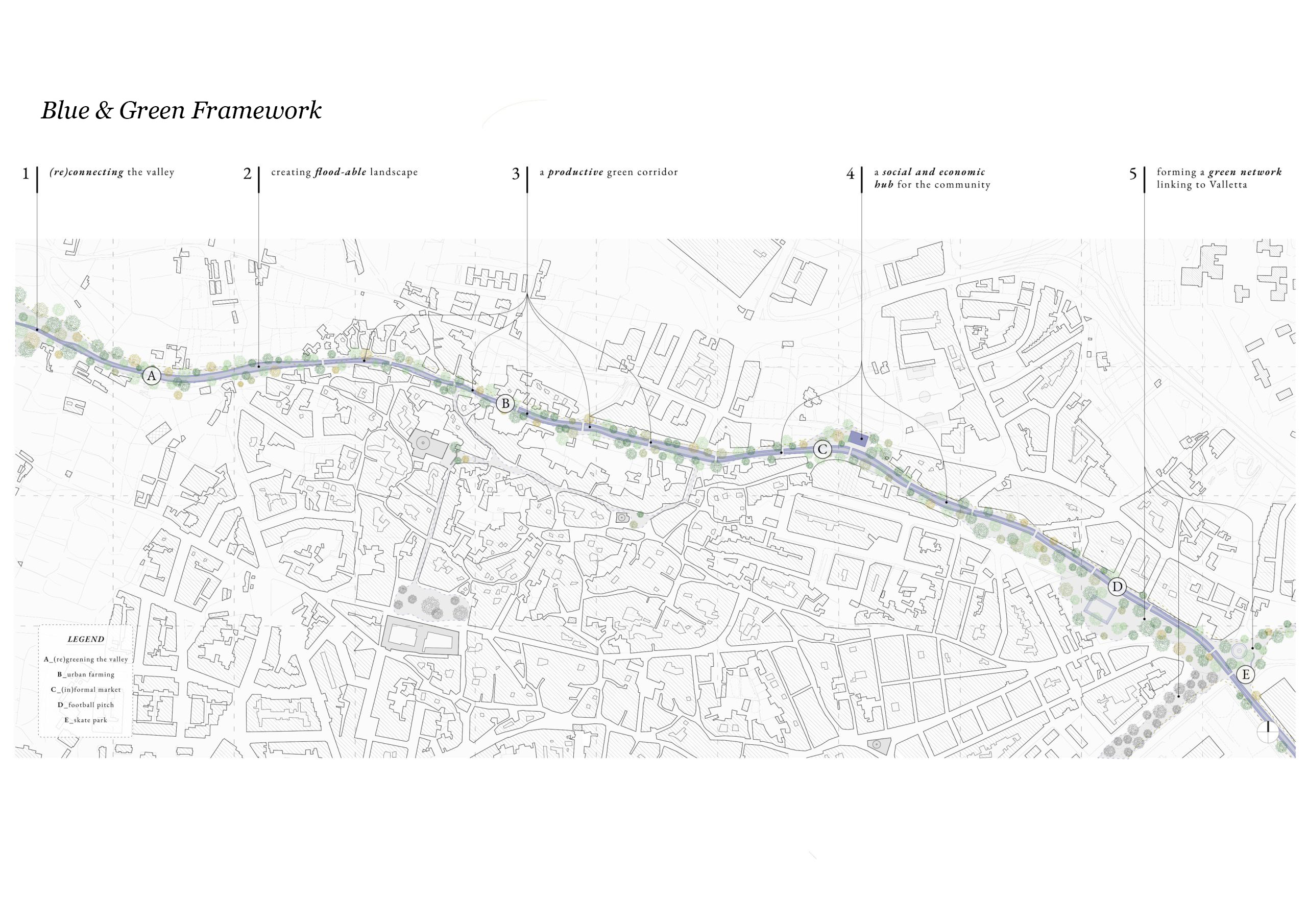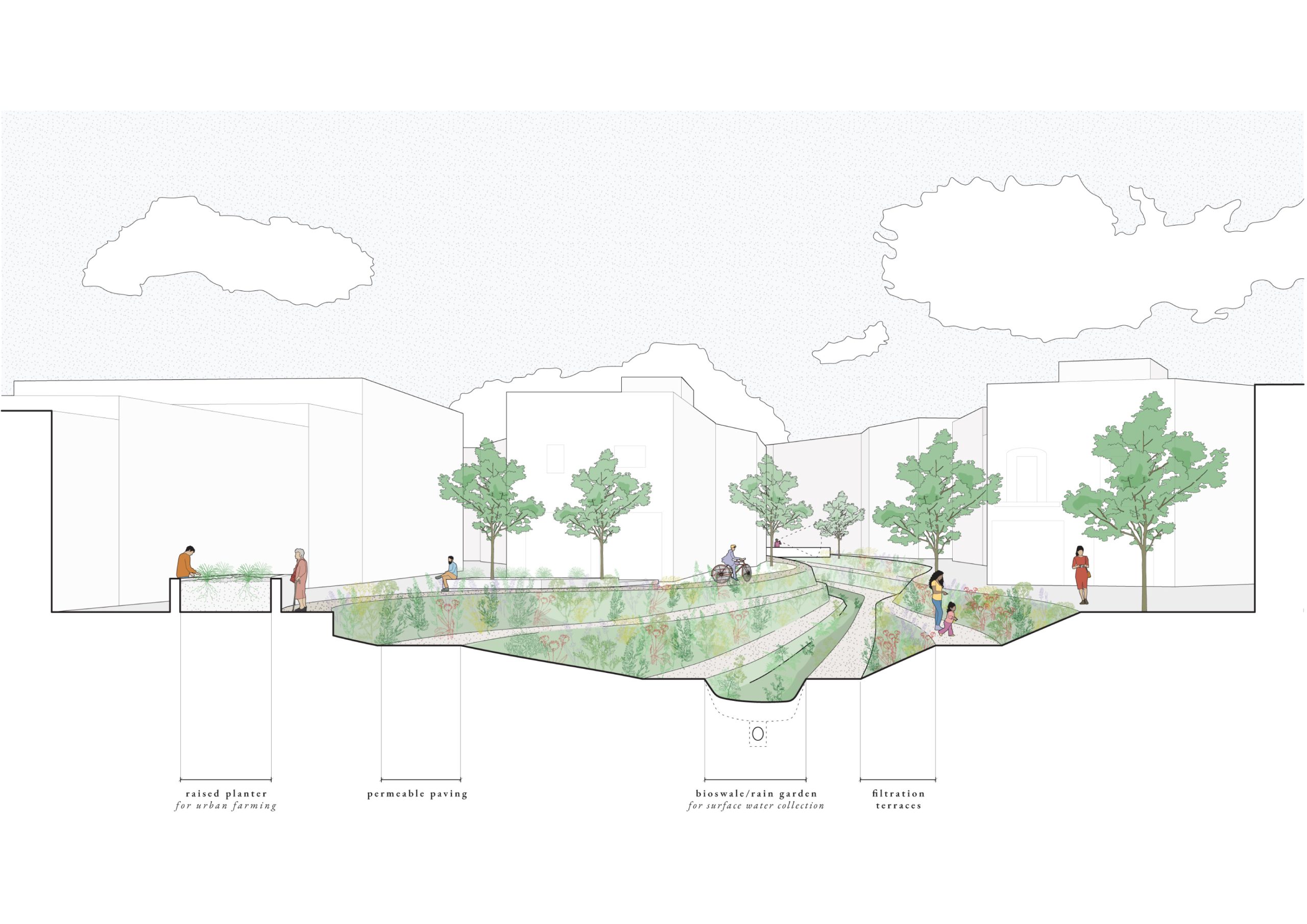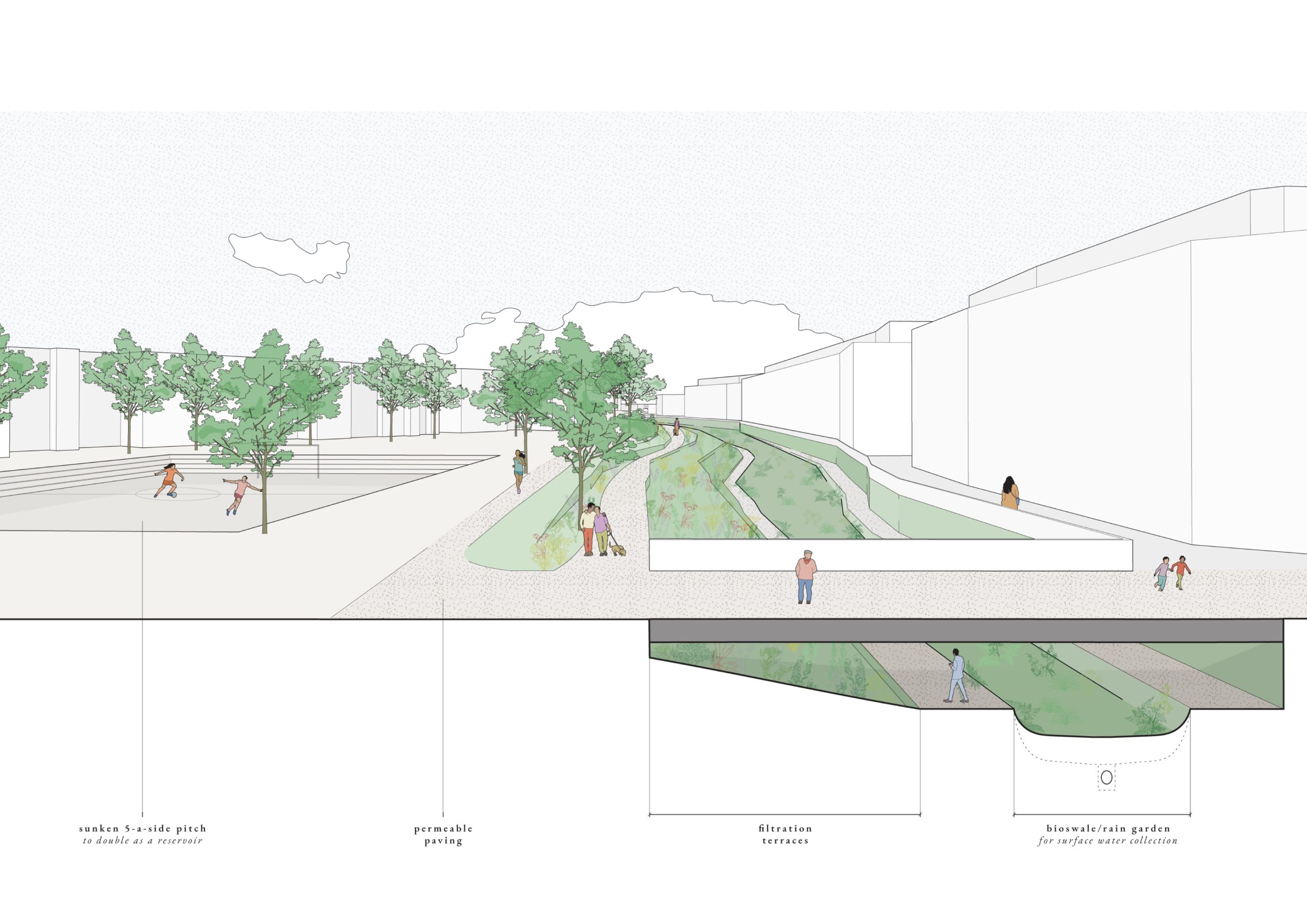Wied is-Sewda Valley in Malta holds a rich past. Once a source of agricultural bounty and a connection to the historic town of Qormi, it has fallen victim to neglect and industrial development. Now, a visionary regeneration plan aims to breathe new life into this forgotten space, transforming it into a thriving community hub.
The regeneration of Wied is-Sewda Qormi by AP Valletta was the winner of the Urban Planning Concept Award at this year’s MASP awards ceremony.
According to the jury members, this entry was considered as a winning submission thanks to the reinstatement of the quality of a valley within the city. This masterplan for Wied is-Sewda's regeneration will see the once-concrete wasteland be reborn as a "super solution for an actual no place," reconnecting the valley to the community and restoring its forgotten green heart.

Wied is-Sewda, Hal-Qormi, after some rainfall
Climate change is a pressing concern for Malta, and Wied is-Sewda is particularly vulnerable to flooding. The plan prioritises climate-resilient infrastructure, incorporating flood-able landscapes and natural drainage systems. Rainwater will be collected, retained, and reused, mitigating flood risks and creating a sustainable water management system.
The project does not shy away from Wied is-Sewda's history. The regeneration plan aims to rediscover the valley's intrinsic character, re-establishing the historic green infrastructure and watercourse.
This will not only restore the natural beauty of the area, but also allow the community to reconnect with its cultural heritage. Urban agriculture will be a key element, fostering intergenerational knowledge sharing and promoting a more sustainable future.

Wied is-Sewda / wider context
Executive Director at AP Perit David Felice explained that inspiration was drawn from Qormi's history, as its name possibly referred to the confluence or gathering of streams - water and a lush valley that gave birth to the presence of one of today's largest residential areas.

Wied is-Sewda / wider context
“The concept of the proposed project lies in reverting the extensive and broad concrete channels so as to perform and function as a natural valley once again. The proposal supports the alleviating of the major problem of rainwater run-off and loss into the sea, by allowing the natural banks and bed of the valley to capture the rainwater for re-use. The proposal also attempts to re-instate the natural valley's connection back into the urban fabric of Qormi.”
The revitalised valley will be a vibrant hub for the community. Walkable paths and bike lanes will encourage exploration and exercise, while new playgrounds and public spaces offer opportunities for recreation and social interaction. The project aims to attract younger generations while providing spaces for active ageing for the existing population.
By prioritising community engagement, climate adaptation, and nature-based solutions, this project offers a blueprint for creating resilient and thriving urban spaces for the future.

Wied is-Sewda / Concept design by AP Valletta
The key strategies for transformation include reuniting the valley with the historic centre of Qormi, fostering a sense of belonging, creating a flood-able landscape that integrates with a natural drainage system, introducing a productive green space for agriculture, education, and public enjoyment, and connecting the valley to Valletta, creating a unified urban green space.
The success of this ambitious project hinges on collaboration. Extensive consultations with biologists, designers, geographers, and the local community were central to the design process. The community will continue to play a crucial role throughout the project's three phases, from producing compost and growing seedlings to ultimately reactivating the valley as a green lung for Qormi.
“There is an intense desire and longing for safe and inclusive green environments to be reintroduced back into our daily lives. The proposed re-wilding of the landscape contributes towards a reinvigorated public realm, reconnecting people to nature whilst allowing pedestrians, cyclists, and light public transport to provide a comfortable and unpolluted journey right into the heart of the historic centre of Qormi and beyond,” Perit David Felice stated.
The regeneration of Wied is-Sewda Valley is a story of hope and transformation. By embracing sustainability, community engagement, and a deep respect for the past, this project promises to create a vibrant and resilient space for future generations.
The MASP Awards are organised by the Planning Authority and fall under the Patronage of the President of Malta. For more information visit www.maspawards.com
Main Image:
